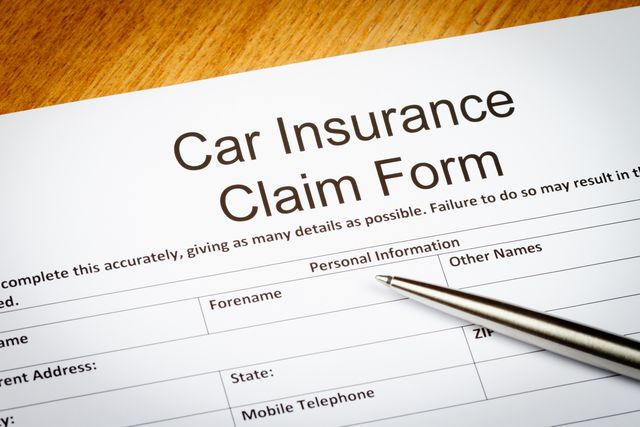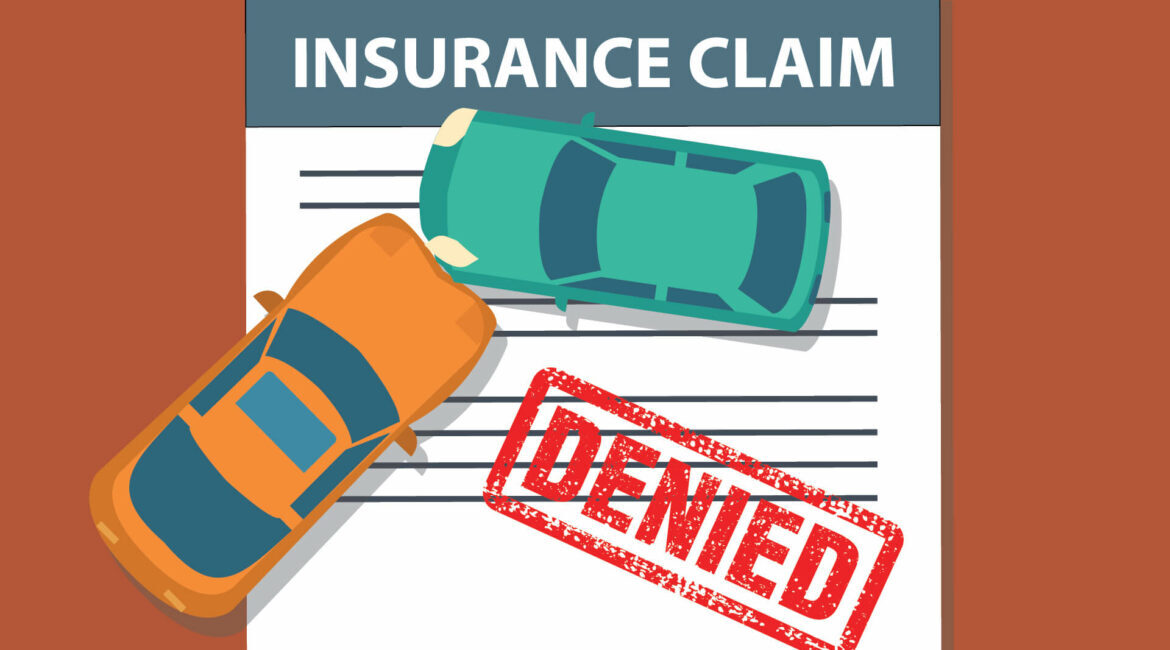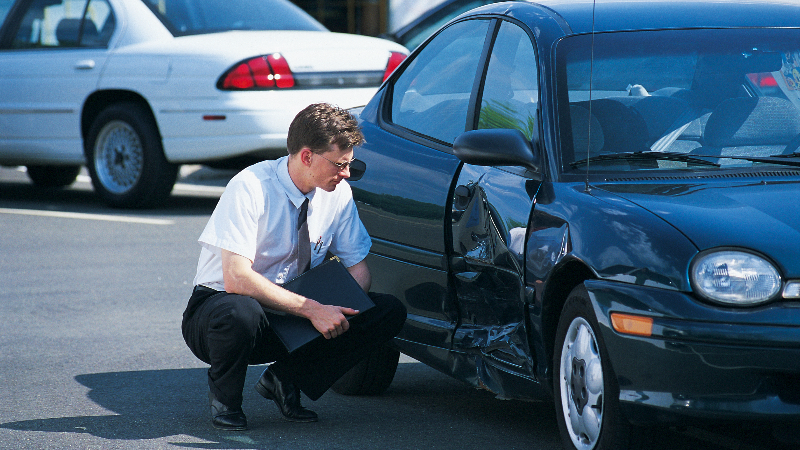Does It Mean When Car Insurance Claim is Closed? claim is closed when the insurance company has completed the evaluation and processed the payment. This means no further action is required.
Understanding the status of your car insurance claim is crucial. When a claim is closed, it signifies that the insurance company has finished its review. All necessary payments have been made, and there is no pending documentation or further investigation required.
This status helps policyholders know that their claim process is complete. It provides clarity and peace of mind, ensuring that all financial aspects have been settled. Keeping track of your claim status can prevent any unexpected surprises and ensures that you are fully informed about the resolution of your insurance claim.
Introduction To Closed Car Insurance Claims
Understanding a closed car insurance claim is important. When a claim is closed, it means the insurance company has finished processing it. This status can have different implications for policyholders.
The Basics Of Claim Closure
When a claim is closed, it indicates the insurance company has completed all actions. No more work or payments are pending.
There are several reasons for claim closure:
- All payments have been made.
- No further information is needed.
- The claim was denied.
It is crucial to know the reason behind the closure. This helps in understanding the claim status better.
Impact On Policyholders
Closed claims can affect policyholders in different ways. It can influence future premiums and coverage options.
Here are a few impacts:
| Impact | Description |
|---|---|
| Premiums | Closed claims may increase or decrease future premiums. |
| Coverage | Future coverage options might change based on claim history. |
| Policy Renewal | Closed claims can influence policy renewal terms. |
Understanding these impacts helps in managing future insurance needs better.

Closing A Claim: The Process
Understanding the process of closing a car insurance claim can be challenging. Knowing the steps helps ensure a smoother experience. Here’s an outline of the process involved when a car insurance claim is closed.
Initial Assessment
The first step is the initial assessment. This involves reporting the incident to your insurance company. You must provide all necessary details about the accident. The insurer then assigns a claim number to your case. This number is used for all future communication.
| Steps | Description |
|---|---|
| Report Incident | Provide details of the accident to your insurer. |
| Assign Claim Number | A unique number is given to your case for tracking. |
Investigation And Adjustments
After the initial assessment, an investigation begins. The insurer assigns an adjuster to your case. The adjuster examines the evidence and assesses damages. They may contact witnesses and review police reports.
The adjuster then determines the compensation amount. This amount is based on the policy terms and damage extent. You may need to provide additional documents, such as repair estimates.
- Assign Adjuster
- Examine Evidence
- Contact Witnesses
- Review Police Reports
- Determine Compensation
- Provide Additional Documents
Reasons Behind Claim Closure
Understanding why a car insurance claim is closed can be confusing. There are several reasons behind a claim closure. These reasons can help you know what to expect.
Settlement Agreement
A settlement agreement is one main reason for claim closure. When both parties agree on the payment, the claim closes. This means the insurance company agrees to pay a certain amount. The policyholder also agrees to this amount. Once the payment is made, the case is considered resolved.
| Reason | Description |
|---|---|
| Settlement Agreement | Both parties agree on a payment amount. |
Lack Of Coverage Or Denial
Another reason is lack of coverage or denial. Sometimes, the insurance policy does not cover the damage. In such cases, the insurance company denies the claim. This can happen if the policy limits are reached. It can also occur if the type of damage is excluded from the policy.
- Policy limits are reached
- Damage type is excluded
- Insufficient documentation
If any of these reasons apply, the claim will close without payment. It’s essential to read and understand your policy well. This helps avoid surprises during a claim process.

Settlements Explained
Understanding a closed car insurance claim involves knowing about settlements. When a claim is closed, it means the process has ended. The settlement process plays a crucial role in this.
Understanding Payouts
A settlement is the amount paid by the insurance company. This payout covers the damages or losses from the accident. The amount depends on the policy and the damage assessment.
Here is a table to illustrate different types of payouts:
| Type of Damage | Possible Payout |
|---|---|
| Vehicle Repair | $2,000 – $10,000 |
| Medical Expenses | $1,000 – $50,000 |
| Property Damage | $500 – $5,000 |
Negotiation And Finalization
Once an offer is made, you can negotiate. Negotiation helps ensure you get a fair amount. The final settlement amount is agreed upon after talks.
Here are steps in negotiation:
- Review the initial offer.
- Gather evidence like repair bills or medical records.
- Make a counteroffer if needed.
- Discuss until both parties agree.
Finalizing the settlement closes the claim. Both parties sign an agreement, and the payment is made. The claim is then officially closed.
When Claims Get Denied
Understanding why your car insurance claim gets denied can be confusing. It’s important to know the common reasons for denial and how to appeal.
Common Reasons For Denial
- Lack of Coverage: Your policy may not cover the specific incident.
- Missed Premium Payments: Failing to pay premiums can void your policy.
- Incorrect Information: Providing false or incomplete information can lead to denial.
- Policy Exclusions: Some policies exclude certain types of damage or incidents.
- Late Reporting: Reporting the incident late can cause your claim to be denied.
The Appeal Process
If your claim is denied, you can appeal the decision. The steps are usually straightforward:
- Review the Denial Letter: Understand the reasons given for the denial.
- Gather Evidence: Collect documents and evidence supporting your claim.
- Contact Your Insurer: Reach out to your insurer to discuss the denial.
- Submit an Appeal: Write a formal appeal letter explaining your case.
- Follow Up: Stay in touch with your insurer until a resolution is reached.
Appealing a denied claim requires patience and thoroughness. Make sure to keep detailed records of all communications.
Reopening A Closed Claim
Understanding what it means when a car insurance claim is closed is crucial. Sometimes, you may need to reopen a closed claim. There can be various reasons for this. Let’s explore the circumstances for reopening a claim and the steps to challenge the closure.
Circumstances For Reopening
Certain situations allow you to reopen a closed claim. These include:
- New Evidence: Discovery of new evidence related to the accident.
- Medical Issues: New medical issues arise after the closure.
- Disputes: Disputes over repair costs or settlements.
Each of these circumstances can justify reopening your claim. Always gather supporting documents to strengthen your case.
Steps To Challenge Closure
Follow these steps to challenge the closure of your claim:
- Review: Carefully review the claim closure letter.
- Contact: Contact your insurance company to discuss your concerns.
- Provide Evidence: Submit new evidence or medical reports.
- Formal Appeal: File a formal appeal if required.
Document every interaction with your insurer. Keep copies of all correspondence. This can help in case of further disputes.
Impact On Future Premiums
When a car insurance claim is closed, it can impact your future premiums. Insurance companies review your claims history. They use this information to adjust your rates.
How Closed Claims Affect Rates
Closed claims may increase your insurance rates. Insurers see you as a higher risk. This can lead to higher premiums.
Claims that are your fault can have a bigger impact. The severity of the claim also matters. Bigger claims can lead to higher rate increases.
| Type of Claim | Impact on Premiums |
|---|---|
| At-Fault Accident | High |
| Minor Accident | Moderate |
| Comprehensive Claim | Low |
Tips To Manage Premium Increases
- Shop around: Compare rates from different insurers.
- Ask for discounts: Look for safe driver and multi-policy discounts.
- Improve your credit score: A good score can lower your premiums.
- Consider higher deductibles: This can lower your monthly payments.
- Review your coverage: Adjust your coverage to fit your needs.

Preventing Claim Closure Issues
Understanding car insurance claim closure is essential. Preventing issues during this process saves time and stress. Follow these steps to keep your claim on track.
Maintaining Accurate Records
Keep all documents related to your claim. This includes photos, police reports, and receipts.
- Organize documents in a dedicated folder.
- Ensure all information is up-to-date.
- Verify the accuracy of contact details.
Accurate records help in quick claim resolution. They provide clear evidence of your claim. Always double-check your records for errors.
Communication With Insurer
Effective communication with your insurer is key. Respond promptly to their requests.
- Keep a record of all communications.
- Ask for clarification if needed.
- Follow up regularly on claim status.
Clear communication avoids misunderstandings. It ensures your claim is processed smoothly. Always be polite and professional in interactions.
Conclusion: Navigating Claim Closures
Understanding what it means when a car insurance claim is closed is crucial. It signifies the end of the claim process. Knowing this can help you stay prepared for future claims. Let’s break down the key takeaways and how to stay informed.
Key Takeaways
- Claim Closed: This indicates the resolution of your claim.
- Final Settlement: You have received the payment or repair approval.
- Documentation: Ensure you have all related documents.
- Disputes: If you disagree, you can still contest the decision.
Staying Informed And Prepared
Being informed about your claim status helps avoid surprises. Here are steps to stay prepared:
- Keep Records: Save all communication and documents.
- Ask Questions: Don’t hesitate to ask your insurer for details.
- Review Policy: Understand your coverage to know what to expect.
- Stay Updated: Regularly check the status of your claim.
Following these steps ensures smooth navigation through claim closures. Stay informed, keep records, and review your policy often.
Can a closed insurance claim be reopened
A closed insurance claim can potentially be reopened under certain circumstances, although it depends on the specific insurance policy and the laws in the relevant jurisdiction. Typically,
a claim might be reopened if new evidence emerges that could significantly affect the outcome, such as undiscovered damages or overlooked injuries in the case of an auto accident.
Policyholders may also seek to reopen a claim if they believe there was an error or miscalculation in the original settlement. However, insurers generally have strict guidelines and time limits for reopening claims,
and policyholders must provide substantial justification for their request. It’s advisable to review the insurance policy details and consult with the insurer or a legal professional to understand the specific conditions under which a closed claim can be reconsidered.
Can an insurance company close a claim without my consent
An insurance company can close a claim without the policyholder’s explicit consent, but this typically occurs under specific conditions. For example, if the insurance company determines that there is insufficient evidence to support the claim,
if the policyholder fails to provide requested information within a given timeframe, or if the claim is found to be fraudulent, the insurer may close the case unilaterally.
Additionally, some claims might be closed after the insurer pays out what it deems to be the full and fair settlement. While this action might not require the policyholder’s consent, policyholders do have the right to dispute the decision or appeal the claim closure,
often through the insurer’s internal review process or by seeking legal advice. It’s important for policyholders to stay informed about their rights and responsibilities throughout the claims process and to communicate promptly with their insurer to avoid unexpected closures.
Frequently Asked Questions
What Does It Mean When A Claim Is Closed?
A claim is closed when the insurance company has completed its investigation, made a decision, and issued payment if applicable.
What Does Claim Closed As Fault Mean?
A claim closed as fault means the insurer determined you were responsible for the incident. This affects your premiums.
What Happens When An Insurance Company Closes Down?
The state guaranty association steps in to protect policyholders. Claims and policies are transferred to another insurer. Policyholders should receive notifications and instructions. Coverage limits and terms might change.
Why Do Insurance Companies Drag Out Claims?
Insurance companies drag out claims to save money. Delays can pressure claimants to accept lower settlements. They also use the time to investigate claims thoroughly. This helps them avoid fraudulent payouts.
Conclusion
Understanding when a car insurance claim is closed provides clarity and peace of mind. It signifies that all necessary processes are complete. Always review the closure details carefully. This ensures there are no unresolved issues. Stay informed and proactive in your insurance matters to avoid future complications.

Hello and welcome to HealthcareInsuranceNews.com! I’m Emon Sheikh, and I’m thrilled to be your guide through the intricate world of healthcare insurance.
As a dedicated blog writer focusing on healthcare insurance, I’m passionate about helping individuals navigate the complexities of insurance policies, understand their coverage options, and make informed decisions to protect their health and finances.
With a background in Life Insurance, Travel Insurance, Medical Insurance, Pet Insurance, Students Insurance, Cancer Insurance, I bring a wealth of knowledge and insights to my writing. Through my blog posts, I aim to demystify insurance jargon, provide practical tips, and keep you up-to-date on the latest developments in the healthcare insurance landscape.
Whether you’re a seasoned insurance professional, a healthcare provider, or someone simply seeking guidance on finding the right insurance plan, I’m here to provide valuable information and support. Together, let’s unravel the complexities of healthcare insurance and empower you to take control of your healthcare journey.
Thank you for visiting HealthcareInsuranceNews.com, and I look forward to sharing this journey with you!
Best regards,
Emon Sheikh
